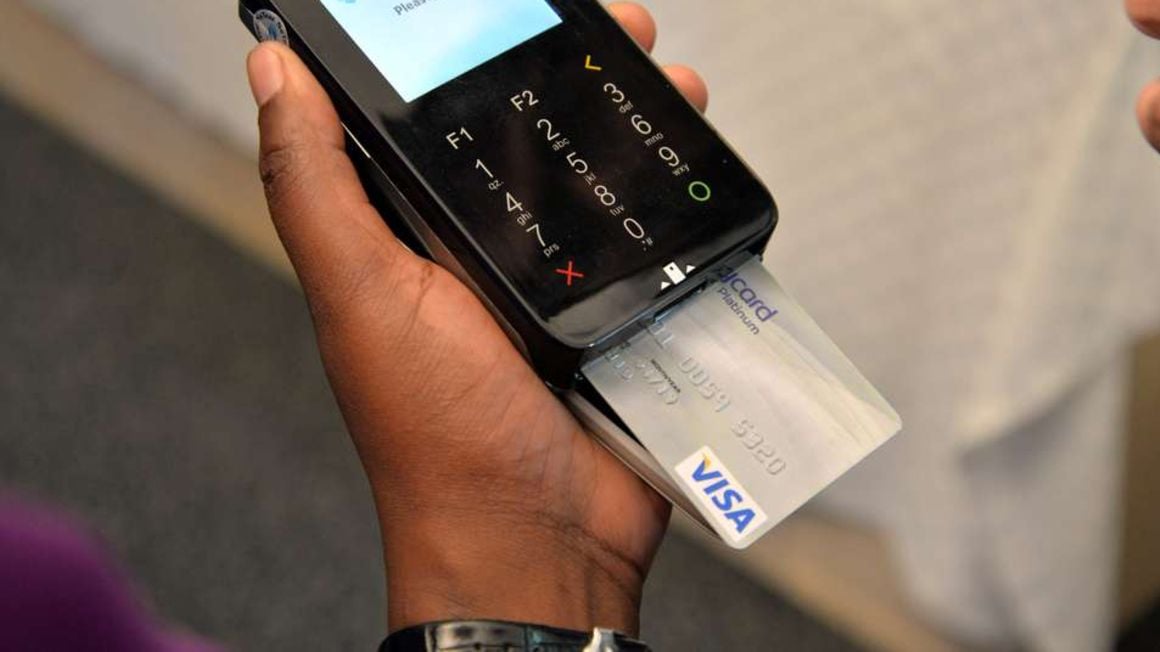
Many Kenyans use debit and credit cards issued by their banks to pay for purchases in supermarkets, eateries, petrol stations or online. FILE PHOTO | NMG
Many Kenyans use debit and credit cards issued by their banks to pay for purchases in supermarkets, eateries, petrol stations or online.
On the face of it, such payments appear straightforward - make a purchase, swipe a card and take possession of the goods. However, there’s a wide array of activities that take place in the background and at great speed to complete such transactions.
For each payment made using a debit or credit card (the card), the seller (supermarkets, eateries, petrol stations etc) pays a commission on the card receipts.
This commission is known as ‘merchant service commission’ and is shared between three entities - the bank that issued the debit or credit card to the cardholder (issuing bank), the merchant’s bank (acquiring bank) and the card company such as Visa, MasterCard and America Express.
The portion of the merchant service commission received by the issuing bank or the acquiring is known as ‘interchange fee’. This fee serves as an incentive to the issuing bank to continue issuing cards to their customers.
Another party to the card transaction is the acquiring bank which recruits, screens and accepts merchants into the network of card payments. The acquiring bank issues the seller with Process Data Quickly (PDQs) machines to record card payments.
The seller and the acquiring bank then enter into an agreement for payment settlement. Under this agreement, the latter agrees to settle payment for goods and services sold by the seller to the cardholder. Where the cardholder is not a member of the acquiring bank, the latter seeks reimbursement for payment made to the seller from the issuing bank.
The flow of the transaction is as follows. When a customer swipes a card on the seller’s PDQ machine, an authorisation is sent to the card network to accept the card. The network switches the card from the acquiring bank to the issuing bank.
The issuing bank confirms if either the customer has sufficient funds to make the purchase for debit cards or the purchase is within the customer’s credit limit for credit cards. Upon this confirmation, the issuing bank relays a payment authorisation to the acquiring bank.
The authorisation serves as the issuing bank’s commitment to settle purchases made by the cardholder from the merchant. Upon the receipt of the authorisation, the acquiring bank relays the same to the merchant who generates a transaction receipt.
The merchant then acquires the funds relating to the purchase made by the cardholder from the issuing bank. The issuing bank in return earns an interchange fee for its support in the transaction.
Kenya Revenue Authority (KRA) in a recent decided case at the High Court had assessed Absa (formerly Barclays) Value Added Tax (VAT) on interchange fees.
The key issues for determination by the High Court were whether the transaction between the issuing bank and the acquiring bank should be considered as a provision of service under the ambit of the VAT Act, 2013. If yes, whether such services fall under the category of VAT exempt services or services which attract VAT at the standard rate of 16 per cent (currently 14 per cent).
Upon considering all the facts relating to the payments made by cardholders, the High Court ruled that the services provided by the issuing bank in the course of the transaction are to its customers rather than to the acquiring bank.
The service performed by the issuing bank is verification of payment which is not an independent function but is ancillary to the supply of money services performed by commercial banks which is exempt from VAT.
Notwithstanding the above, the High Court was of the opinion that since no services had been offered by the issuing bank to the acquiring bank, there was no basis for determining whether VAT was applicable or not.
Currently, there is a twist to the above ruling by the High Court on application of VAT on interchange fees following a more recent ruling by the Court of Appeal on Withholding Tax (WHT) on interchange fees to issuing banks.
In a case between the KRA against Absa, the Court of Appeal ruled that interchange fees are primarily paid for management or professional services and as such are subject to WHT.
The decision by the Court of Appeal on WHT on interchange fees is likely to have implications on the VAT treatment of the services. For now, it is safe to say that this issue is far from settled.
Mr Maina is a tax advisor with KPMG Advisory Services Limited (samuelmaina@kpmg.co.ke). The views and opinions are those of the authors and do not necessarily represent the views and opinions of KPMG.




No comments :
Post a Comment